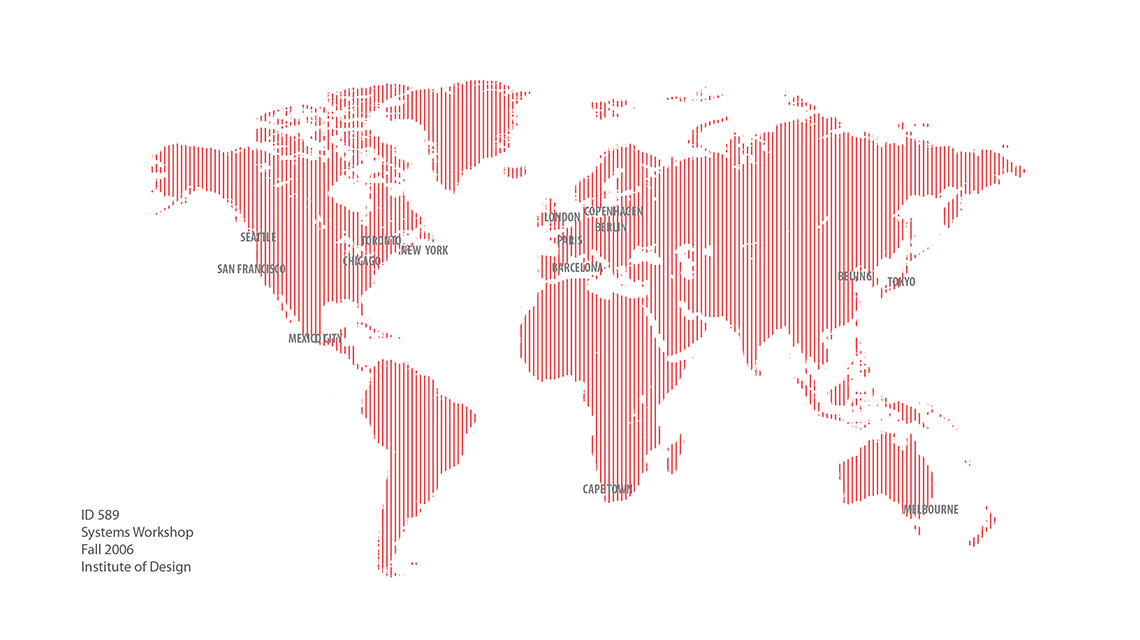
Problem
It is too late to prevent the effects of global warming. It is not too late, however, to assemble and develop strategies to help us adapt. To mitigate the worst of the potential greenhouse excesses, we must now face and meet great challenges of reducing emissions on a global scale, but even to maintain our quality of life, we will have to adapt simultaneously to widely diverse environmental challenges that will increasingly confront us locally.
Overview
Change will not be uniform. Some regions will be hotter and drier; some will be wetter. The common element is that changes will be extreme. Around the world’s coastlines, all habitats will experience rising waters. (16 of the world’s 19 cities rated as megacities in 2005 are on a coast.) Weather events will become more intense and more frequent, and a host of induced plagues will follow on from these climatic disruptions. Our passport to survival will be our capacity to adapt.
Final Results
Four projects explore the problem. Three describe specific strategies, concepts and procedures for locally mitigating and adapting to the three major classes of climate-instigated problems. The fourth outlines a process that can be implemented by urban communities to develop region-specific plans for mitigation and adaptation.
1. Adapting to a Hotter, Drier World
How an urban community can adapt to change induced by a hotter and drier climate.
Report: MC1 hot_dryreport sm
Appendices: MC1 hot_dryappend
Presentation: MC1 hot_drypres
2. Massive Change: Living in a World of Rising Seas
Concepts to help an urban community to adapt to change induced by rising seas.
Report: MC2 risingseasreport
Appendices: MC2 risingseasappend
Presentation: MC2 risingseaspres
3. Design Strategies for a Wetter World
Adapting urban communities to change induced by a wetter climate.
Report: MC3 wetterreport
Appendices: MC3 wetterappend
Presentation: MC3 wetterpres
4. Adaptive Urban Planning for Climate Change
An adaptive planning process for recognizing climate threats, assembling tools to mitigate and respond to them, and integrating the response into urban policy. The city of Chicago is used as an example.
Report: MC4 adaptreport
Appendices: MC4 adaptappend
Presentation: MC4 adaptpres
Tags:
Faculty
Students
Alexander Cheek
Andrew Buhayar
Chun-Juei Chou
Elisabeth Martinez De Morentin
Eric Niu
Eric Wilmot
Erik Crimmin
Gabriel Biller
Ido Mor
Irene Chong
Jihyun Lee
John Montgomery
Kristian Buschmann
Kristy Scovel
Manoj Kumar Adusumilli
Margo Horowitz
Mario Ruiz
Ming-Shan Wu
Natrina Toyong
Sang-Ho Lee
Yoo-Jung Ahn
Albert Wang